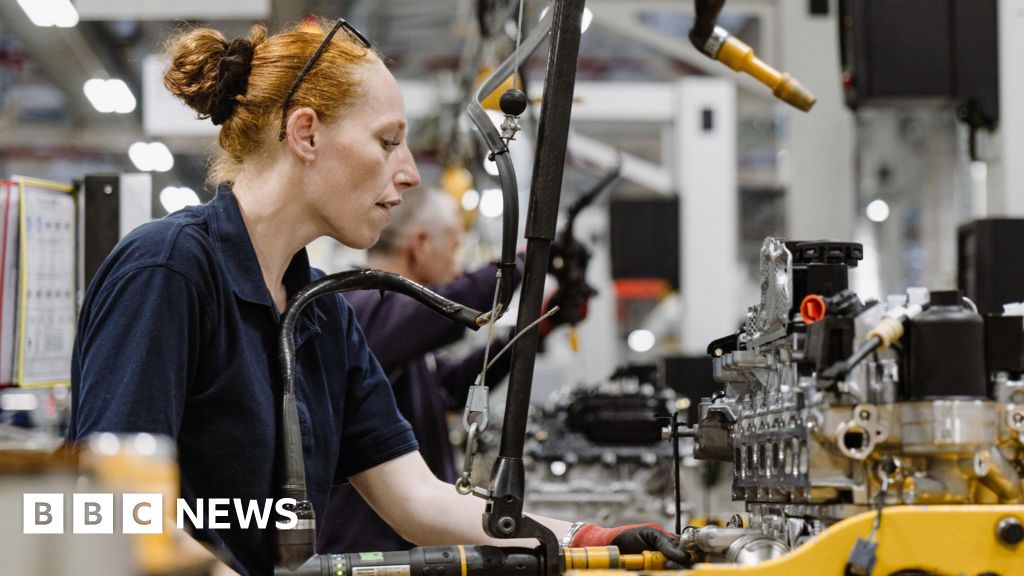The UK economy grew by a weaker-than-expected 0.1% in the July-to-September period, official figures show.
While the service sector was the main driver of growth in the quarter, the Office for National Statistics said the production sector contracted, led by weakness in manufacturing.
The economy shrank by 0.1% in the month of September, when the ONS said there was a “marked” fall in car production following the impact of the cyber attack on JLR.
The growth figures are the last to be released ahead of the Budget later this month, when Chancellor Rachel Reeves is widely expected to raise taxes in order to meet her self-imposed borrowing rules.
Analysts had expected growth in the third quarter to be 0.2%.
Responding to the ONS data, Rachel Reeves said the UK had the fastest-growing economy in the G7 in the first half of the year, but said “there’s more to do to build an economy that works for working people”.
“At my Budget later this month, I will take the fair decisions to build a strong economy that helps us to continue to cut waiting lists, cut the national debt and cut the cost of living,” she said.
ONS director of economic statistics Liz McKeown said that while there had been some growth in services and construction, they were weaker than in the previous quarter.
“Services were the main contributor to growth in the latest quarter, with business rental and leasing, live events and retail performing well, partially offset by falls in R&D and hair and beauty salons,” she said.

